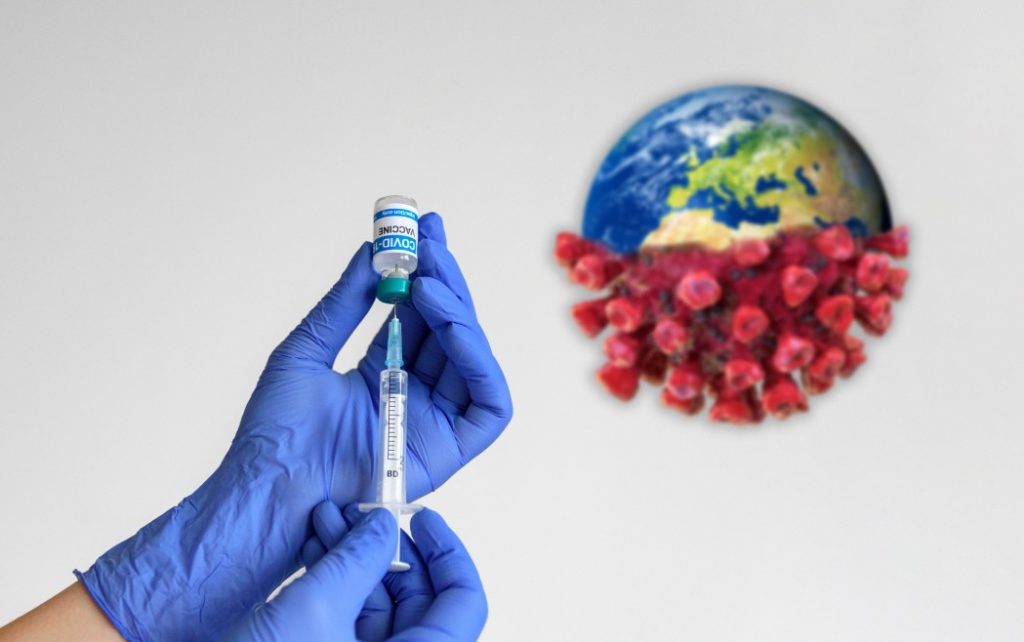Such 'vaccine nationalism' is being criticized for unnecessarily dragging out the Covid pandemic and increasing the global death toll.
India is currently grappling with a devestating wave of Covid-19. Case numbers and deaths are high. Hospitals are overwhelmed and treatments like oxygens are running low. Plus, the infectious nature of the disease means that there is a snowball effect - the more cases there are, the faster the virus spreads. Meanwhile, in countries like the USA and the UK, Covid deaths are flatlining. In Britain, just 0.001% of the country even have the virus, let alone any serious illness from it.
One key difference that is often pointed to is that India ended its lockdown last June. For months, large crowds have been gathering for everything from cricket games to election rallies. In the UK, non-household socialising is still limited to six, outdoors. However, focusing just on Covid restrictions misses out a big piece of the picture: vaccines.
Since the start of the pandemic, the world has developed several vaccines which are extremely effective at stopping people becoming seriously ill with coronavirus. Countries whose Covid death rates are low also tend to have done a lot of vaccine jabbing: the UK has given a vaccine to half its population and the USA is at about 39 percent. In contrast, India has put jabs in just 10 percent of its population’s arms.
While government funding has been a crucial aspect of their development, Covid vaccines are the products of for-profit pharmaceutical businesses. Some of these companies have pledged to sell coronavirus vaccines at cost. However, because these products are still being sold on the market like regular commodities they have ultimately been easier for some countries to get hold of than others.
Wealth helps: vaccine purchases make smaller dents in the budgets of richer countries, who also had the financial ability to make advanced orders (i.e. before it was even known if the vaccines would work). So does having the influence that comes with being a global power, or being a country where the pharmaceutical companies themselves are based. (Being a country where the vaccines are manufactured, as India is, doesn't seem to have the same effect.)
The upshot is that some countries, including India, are facing vaccine shortages that are severely hampering their ability to get on top of the pandemic, while other countries, including the UK and the USA, have such a large surplus of jabs they’re now locking the extra ones up in storage. A lot of people are pretty angry about this refusal to share. Although global inequality is nothing new, it is still difficult for many to morally justify letting human beings - and the economies they rely on - suffer just because they don’t belong to a certain part of the world.
Even from a purely selfish perspective, vaccine nationalism could be bad for places like the UK. The longer the pandemic keeps raging in other countries, the longer it is likely to be before British residents can travel abroad for leisure or business or to visit family and other loved ones. It will probably also take longer for trade between the countries to go back to normal. On top of that, leaving a pandemic unsquashed ups that chance that Covid-19 will mutate into a new, vaccine-defying variant which will inevitably eventually reach the UK, possibly dragging the country back into the pandemic.
Read our explainer on: international development

